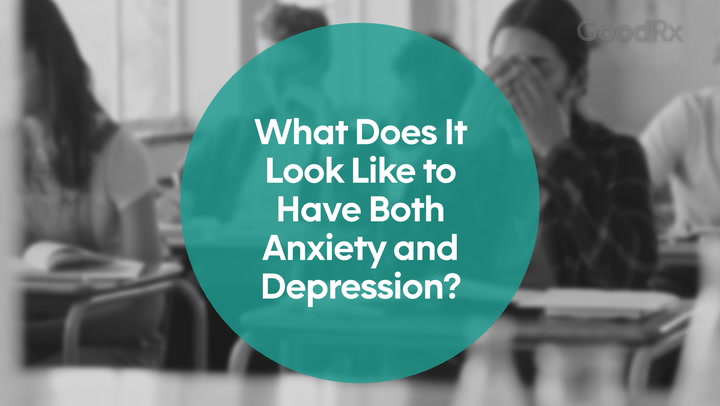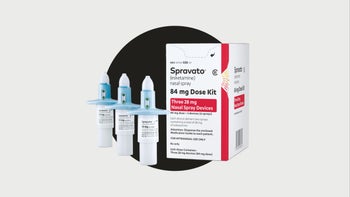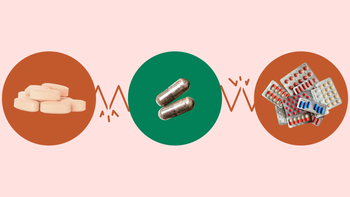
How to Help Someone With Depression
Key takeaways:
Depression is a mental health condition that causes a range of symptoms, including feelings of sadness and hopelessness.
Figuring out how to support someone with depression can be challenging. Whether a friend or family member is experiencing depression, there are many ways to support them.
To support someone with depression, you can start by educating yourself, being available to help, and understanding that depression isn’t something that people can control.
Access savings on related medications
Table of contents
Depression is a common type of mood disorder that can affect how a person thinks, feels, and behaves. It can impact many aspects of life, including sleeping and eating habits, performance at work or school, and relationships with other people.
When someone you know is dealing with depression, you may be eager to step in and help. But bringing up your concerns can be tricky, because you want to avoid making that person feel worse. If you have a friend or family member who has depression, there are different ways to show them you care and encourage them to get help.
How to recognize the symptoms of depression
The symptoms of depression can look different from person to person. But, in general, people with depression can experience the following:
A sad or irritable mood that lasts for most of the day
Loss of interest in things or activities that they once enjoyed
Difficulty sleeping or sleeping too much
An increase in movement, like being agitated and nervous, or a decrease, like sluggishness
Frequent tiredness
Difficulty focusing or making decisions
Changes in weight or appetite
Feeling worthless or guilty
Suicidal thoughts, plans, or attempts
If someone you know is depressed, you might also notice other signs, such as:
Neglecting their hygiene or appearing untidy
Appearing aloof or distant
Giving away important items, which can be a sign of suicidal ideation
Misusing drugs or alcohol or engaging in risky behaviors like gambling
Complaining of physical symptoms like pain, headaches, and muscle tension
Good to know: Older adults are more likely to have depression than younger people, especially if they have long-term medical problems. Depression isn’t a normal part of aging. If you or a loved one is experiencing any of the above symptoms, it’s important to take them seriously.
How to help and support someone with depression
If you know someone who’s showing signs of depression, you may be wondering how you can help them. Having an open discussion about your concerns and encouraging them to get help is the first step.
Here are some other suggestions on how to help:
Be an active listener. While it’s important to voice your concerns and show your support, it’s also key to listen without judgment. Being an active listener means being fully present and not interrupting when the other person is talking.
Be available. Let them know on a regular basis that you care and that you’re available to help. Make sure they know that you accept them for who they are.
Don’t judge. Remember that depression isn’t something they can control.
Remind them that they’re important. Depression can make people feel like they’re a burden or that their feelings don’t matter. Reassure them that their feelings are valid and that there’s help available.
Offer gentle suggestions. It’s OK to offer encouragement to exercise, eat well, and be social. Just remember that these activities can be hard for someone with depression. Try not to take it personally if they can’t act on your suggestions.
Stay informed. Educating yourself about depression is a great place to start. You can use your knowledge to offer ideas and suggestions.
Connect them with resources. There are lots of resources for people who experience depression. You can search for local support groups and share them with your loved one.
Stay in touch. People with depression sometimes have a hard time reaching out to friends and family. Checking in with phone calls, texts, or emails can go a long way. Be patient if they don’t get back to you right away.
Help them with practical things. Depression can make even routine tasks feel overwhelming. Consider offering to help them stay on top of things like their medications, physical activity, and other daily tasks.
Don’t give up. Hang in there and remind yourself — and your loved one — that these symptoms will likely get better with time.
Remember to practice self-care. Having a friend or family member with depression can be hard. Make sure that you’re taking care of yourself too.
What does depression look like? A clinical psychologist explains the common signs and symptoms of depression.
What does clinical depression feel like? Clinical depression can include feelings of sadness, hopelessness, and exhaustion. Readers share what depression feels like.
Coping skills for depression: Medication and therapy are often key parts of depression treatment. There are also coping skills that can help lessen symptoms.
What to say to someone who is depressed
It can be challenging to discuss depression with someone suffering from the condition, especially if they experience guilt, shame, or embarrassment about it.
During the conversation, the goal is to bring up your concerns without causing them more shame.
Here are some things to keep in mind:
Express empathy and concern. Empathy is the ability to understand another person by stepping into their shoes. It’s different from sympathy or pity, which involves feeling sorry for another person. Try to communicate your understanding by focusing on your concerns. You can start by saying, “I’m worried about you.”
Listen to their point of view. Once you express your concerns, be open to hearing how they feel. Give them an opportunity to respond and try your best to just listen, without offering unwanted advice. It is OK to give advice if the person asks for it. Until then, though, resist the urge to share your opinions.
Ask them how you can help. Instead of offering solutions, ask them how they would like you to help. If they’re unsure, you can offer a few ideas, but give them the power to choose. You may consider suggesting doing a positive activity, seeing a healthcare professional for therapy or medication, or going to a support group.
Be patient. Recovery from depression is a long process. Practice patience and let them make changes on their own terms, while checking in from time to time about how they’re doing.
What you should avoid saying to someone who has depression
Many people with depression already feel a lot of shame and guilt about how their symptoms affect people around them. With this in mind, there are some things to avoid when talking to a loved one who has depression.
Here’s what to avoid saying or doing:
Blaming the person for their depression by saying, “It’s all in your head”
Telling them to “snap out of it” or “just get over it”
Dismissing their feelings by saying, “It’s not that bad” or, “You have no reason to be depressed”
Calling them selfish for feeling how they do by saying, “You only care about yourself”
Giving them false hope by telling them “it will pass” or “everything will be fine”
Trying to take charge of their life
What to do if the person is having suicidal thoughts
If the person is severely depressed and having suicidal thoughts, it’s important to take action right away. Encourage them to get help by:
Calling or texting 988
Contacting the National Suicide Prevention Lifeline at 1-800-273-TALK (8255)
Going to their nearest hospital
If they’re unwilling to take action and you’re concerned for their safety, it’s important that you call 911 or call or text 988 for guidance on what to do next.
Helping someone with depression get treatment
If someone you know has depression, there are ways to encourage them to get help. Try to gently suggest that they get help, while giving them the power to make the decision. Avoid pressuring them, as this could cause them to say no.
Here are some points to consider when discussing treatment for depression with someone:
Research available treatment options. Before discussing treatment with them, research local mental health professionals, treatment centers, and support groups. You can even call ahead to ask about the admissions process, but don’t book an appointment without permission.
Ask the person if they’d be open to getting help. Rather than demanding they get help, ask if it’s something they’d consider. If they seem reluctant, you can remind them that they can take time to think about it.
If they seem resistant, ask why without passing judgment. They may tell you that they’re nervous, unsure of how to get help, or hopeless that treatment can help them. Depending upon their answer, you can offer support, reassurance, and provide more information to help ease their concerns.
Ask the person if there’s a way that you can help. If they’re unsure, you can offer some suggestions, like helping them schedule an appointment or going with them to their first appointment.
What does treatment include?
Treatment for depression may involve individual, group, or family therapy as well as medication. Effective types of therapy for people with major depressive disorder include:
Psychodynamic therapy
There are many medications that can help treat depression. Antidepressants are an effective type of medication for reducing some symptoms of depression. There are other types of medication that can help too. To learn more about medications that treat depression, set up a meeting with a psychiatrist, psychiatric nurse practitioner, or another healthcare professional who’s licensed to prescribe medications.
Support groups are another therapeutic option. Depending on the group, it may be run by a mental health professional or a peer in recovery. The National Alliance on Mental Illness (NAMI) conducts in-person and online support groups for anyone dealing with a mental health condition.
How to support someone with depression who is currently in treatment
You can continue to support your friend or family member even after they seek treatment for depression. If you’re unsure how to help, you can ask them how they’d like you to support them during this time. Depending on their level of comfort, they may ask you to be a part of their treatment by attending therapy sessions or appointments. Other people may prefer to get help on their own but ask you to call or check in with them.
If you think that you may be playing a role in the person’s depression, you may even consider getting help yourself. For example, if you experience addiction, high levels of stress, or mental health issues yourself, you may not realize that your own struggles can affect your loved one. If this is the case, you may benefit from counseling, therapy, or support groups.
How to help someone with depression who doesn't want help
In some cases, a loved one may deny having depression or be unwilling to get help. It can be hard to see someone you care about suffer. If the person doesn’t want to get help, consider the following:
Respect their decision. While you may disagree, continuing to push your recommendations on someone will likely increase their resistance to getting help. Instead, try to accept that this is their decision and remind them that you’re there if they do choose to get help.
Maintain healthy boundaries and avoid enabling. Enabling happens when you reinforce a person’s behavior, often without even realizing it. For example, maybe you cover up for someone you care about when they miss work. Enabling takes away the negative consequences of the person’s actions.
Suggest family therapy. If your family member is unwilling to get help by themselves, they may be open to seeing a professional with you. Often, family dynamics contribute to depression, so getting help as a family can be beneficial. Your family member may also feel less put on the spot if they’re not the only one getting help.
Seek out counseling or a support group for yourself. It’s stressful to see a loved one struggle. NAMI provides information and resources for family members and caregivers of people dealing with mental illness. It also offers family support groups, both in person and online.
The bottom line
When someone you know experiences depression, it’s best to address it gently and empathically. If you put pressure on a person or try to force them to get help, they may refuse to do so. Instead, share your concerns, listen, ask them how you can help, and educate yourself on the treatment options available.
Why trust our experts?



References
National Alliance on Mental Illness. (n.d.). Family members and caregivers.
National Alliance on Mental Illness. (n.d.). Support groups.
National Council on Aging. (2022). How common is depression in older adults?
Undurraga, J., et al. (2012). Randomized, placebo-controlled trials of antidepressants for acute major depression: Thirty-year meta-analytic review. Neuropsychopharmacology.
For additional resources or to connect with mental health services in your area, call SAMHSA’s National Helpline at 1-800-662-4357. For immediate assistance, call the National Suicide Prevention Lifeline at 988, or text HOME to 741-741 to reach the Crisis Text Line.

























